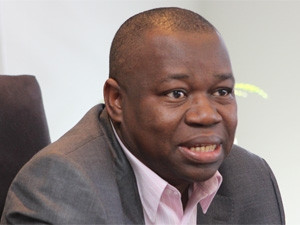
The South African National Roads Agency (Sanral) has hit back at the Democratic Alliance (DA), saying its economics are "deeply flawed".
This comes after the DA yesterday said Sanral's own documents show it knew as far back as 2009 that e-tolling in Gauteng would not work.
The controversial Gauteng Freeway Improvement Project, which will charge users electronically, is set to kick off once president Jacob Zuma signs the Bill into law.
Zuma has still to give the Transport Laws and Related Matters Amendment Bill (e-toll Bill) the nod, paving the way for e-tolls in Gauteng. Meanwhile, an application to the Constitutional Court to halt the implementation by the Opposition to Urban Tolling Alliance will be heard later this month.
Yesterday, in a statement released by national spokesman Mmusi Maimane, the DA claimed Sanral knew from as early as 2009 that it was facing "widespread opposition" against e-tolling on Gauteng freeways.
He says this information is based on documents received recently by the DA following a Promotion of Access to Information Act application by DA shadow minister of transport, Ian Ollis.
Problematic numbers
Based on the documents, a survey was done asking people if they would be prepared to pay an electronic toll if there were two extra lanes on the freeway. In April 2009, 69% of people were willing to pay a toll fee.
"However, in an addendum, as part of the contract information, in June 2009, the results are amended indicating that 48% of people would not be willing to pay for e-tolls."
The DA adds that the Electronic Toll Collection company, in its contract submission, states the opposition shown in the market research "presents a huge communication and marketing challenge to shift attitudes and behaviour of a significantly large group into acceptance, or at least compliance.
"Should such a sizable group actively resist compliance, law enforcement will be seriously hampered and could become virtually impossible to implement. Sizable active resistance could jeopardise the project as a whole."
Maimane says Sanral has known right from the beginning that the people of Gauteng do not want e-tolling. His comments come off the back of a visit to Thembisa, in the East Rand, to determine the effect e-tolling will have on small business owners.
No understanding
However, Sanral argues the economic analysis of e-tolling by the DA is "short-sighted and displays a lack of understanding of the economics around road infrastructure and development".

Spokesman Vusi Mona dismissed Maimane's claim that Sanral knew 48% of road users in Gauteng would not pay for e-tolls. "This info is used for planning purposes, to develop enforcement strategies.
"The document states an expected pay rate of 90% for steady state operations (after the ramp-up period). The survey results were not unexpected as the payment for any services is never a popular choice."
Sanral says it considered all possible funding models and decided on the most sustainable and equitable one. "Maimane's assessment of the economic impact of improved roads is in direct contrast with accepted economics around the matter," Mona notes.
"It is disingenuous to say that improving roads will be detrimental to small and medium enterprises. On the contrary, improved roads will have a positive effect on these businesses. Maimane seems to have forgotten to weigh the cost of congestion in his economic assessment."
Sanral points to a 2007 Automobile Association study showing that, because of congestion, a 1 600cc car would cost R7 775 more to run a month, travelling between Johannesburg and Pretoria.
"In 2010, the South African Chamber of Commerce and Industry raised concerns about the cost of congestion on the Gauteng freeway network. At the time, it was estimated that the cost of congestion on the Ben Schoeman Highway alone amounted to R15 million an hour," says Sanral.
Share